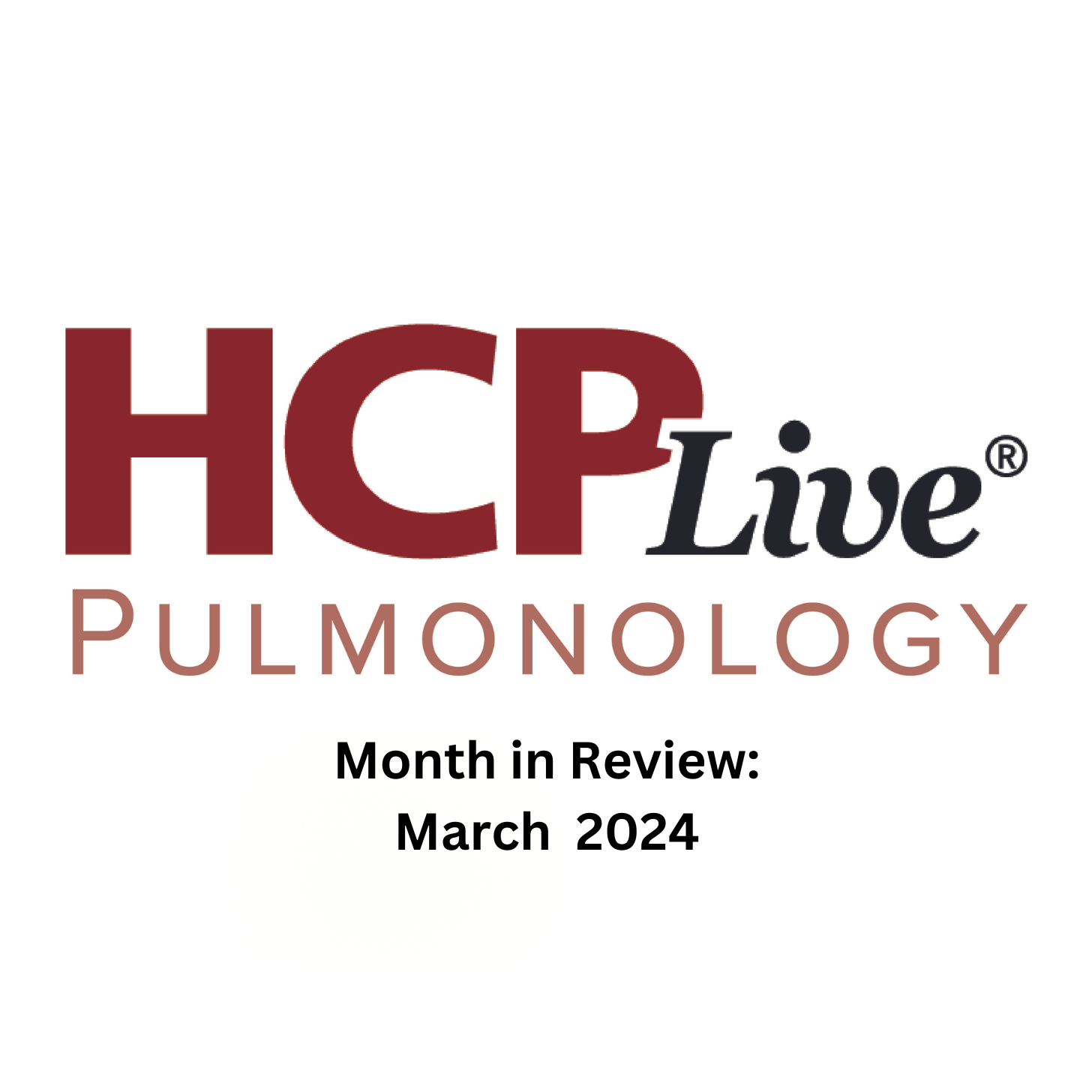News
Article
Pulmonology Month in Review: March 2024
Author(s):
In this Month in Review article for March, news on topics such as asthma and the impacts of pollution in the pulmonology field were highlighted.

As the month of March comes to an end, it may be worth noting that the field of pulmonology saw several major developments and new studies. The editorial team at HCPLive here provides a reflection on the strides made in respiratory health research.
This Month in Review looks at several of the biggest studies covered in March 2024, including new data on asthma management, respiratory virus testing, the effects of Long COVID on patients' lives, and the ongoing impact of pollution on patients’ respiratory health. The following represents a comprehensive overview of our coverage of pulmonary medicine developments.
Short-Term Biofeedback Therapies Lead to Alleviation of Certain Long COVID Symptoms
In 1 study published in the Journal of Psychosomatic Research, from investigators at the UCLA Psychiatry & Biobehavioral Sciences, it was suggested that patients living with long COVID-19 may see some improvement in their symptoms after using short-term biofeedback therapy. This study looked into long COVID patients’ self-regulation of autonomic functions specifically after using breath work practices and relaxation activities along with visual feedback.
“Our biggest hope is that we’ve identified a way to alleviate chronic physical symptoms that are not successfully treated by standard biomedical approaches, and that we did so with a short-term, non-pharmacological model that is easily scalable,” co-author Natacha D. Emerson, PhD said in a statement.
Emerson added, however, that it is important for those viewing the findings to note that long COVID patients are not in control of their symptoms. She added that they are not faking or exaggerating what they have reported to their physicians.
Asthma Disparities: How Pollution in Austin Neighborhoods is Impacting Patients Long-Term
In another analysis covered in March, air pollution in Austin, Texas, was assessed and was shown to have resulted in racial disparities in emergency room (ER) visits for patients with asthma in the Black or Latinx communities.
This research, from investigators from Dell Medical School and the College of Natural Sciences at the University of Texas at Austin, looked at differences between neighborhoods in the 5-county Austin metro region on asthma-related ER visits. This research followed the Environmental Protection Agency’s (EPA) introduction of stricter air quality standards for those in the US.
High Variability, Gaps in Care Observed in Smoking Assessment Implementation Around the US
Cigarette-smoking assessments and treatment within accredited cancer programs were shown in another study in March to be variable within a variety of different elements, indicating persistent gaps in health care for patients with cancer in the US.
These findings came from a national survey conducted to evaluate tobacco treatment in cancer care in different types of clinical oncology settings, as part of a national improvement in quality initiative done by the American College of Surgeons (ACS) looking at cessation of smoking encouragement.
“We are at the transition point of needing to transform the knowledge of what we know to how we do it,” first author Jamie Ostroff, PhD, noted in a statement. “With data and expert input, we will be able to develop and test strategies to close that gap between what we know is a best practice, and what we observe is happening.”
Association Observed Between Depressive Disorders, Respiratory Disorders
https://www.hcplive.com/view/association-observed-between-depressive-disorders-respiratory-disorders
In another study highlighted from the month of March, investigators evaluated possible connections between spirometric indices, ventilatory disorders, and self-reported respiratory system diseases to psychiatric conditions. They identified an association between depressive disorders and respiratory disorders among patients that had self-reported asthma and chronic obstructive pulmonary disease (COPD).
This was not, however, observed in objective diagnoses which were based upon spirometry. The analysis was noted as being the first population-based research aimed at associations between spirometry indices, ventilatory disorders, and psychiatric conditions using semi-structured interviews.
Few Benefits Observed with Rapid Respiratory Virus Testing in Emergency Departments
Lastly, a systematic review and meta-analysis covered in March assessed whether emergency department rapid respiratory virus testing for individuals believed to have acute respiratory infection (ARI) had a connection to antibiotic use decreases, department returns, department lengths of stay, hospitalizations, and other factors. The investigators were able to identify very few benefits to use of routine respiratory virus testing in emergency departments for those with ARI, though they noted that more research in adults with high-risk conditions could be beneficial.
The analysis was led by Tilmann Schober, MD, McGill University’s department of pediatrics in Montreal, Quebec.
“Importantly, all studies were from high-income countries,” Schober and colleagues wrote. “As antibiotic use is higher among marginalized communities within high-income countries and highest in middle-income countries, the effect of viral testing might have been different in other patient populations, limiting the generalizability.”




